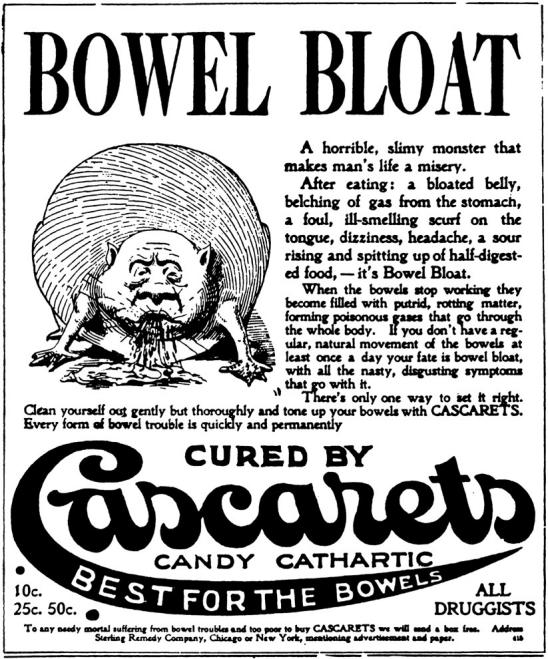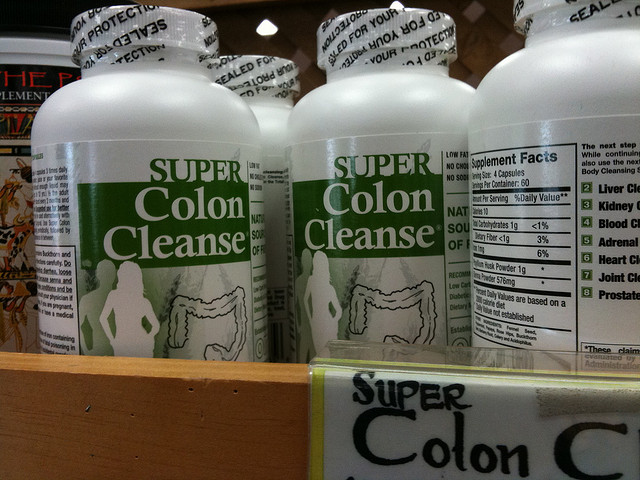 When it comes to health issues, bowels are big business. Bowel movements are part of everyday life, and we notice immediately when our routine changes. Constipation, from the Latin word constipare (“to crowd together”) is something almost everyone has some experience with. In most cases, it’s an occasional annoyance that resolves quickly. For others, particularly the elderly, constipation can be a chronic condition, significantly affecting quality of life. Depending on the question and the sample surveyed, prevalence seems to vary widely. It’s estimate that there are 2.5 million physician visits per year in the USA, and the costs of management are estimated at about $7.5 billion annually. It’s not a trivial issue.
When it comes to health issues, bowels are big business. Bowel movements are part of everyday life, and we notice immediately when our routine changes. Constipation, from the Latin word constipare (“to crowd together”) is something almost everyone has some experience with. In most cases, it’s an occasional annoyance that resolves quickly. For others, particularly the elderly, constipation can be a chronic condition, significantly affecting quality of life. Depending on the question and the sample surveyed, prevalence seems to vary widely. It’s estimate that there are 2.5 million physician visits per year in the USA, and the costs of management are estimated at about $7.5 billion annually. It’s not a trivial issue.
One of the biggest challenges in interpreting both individual patient situations, as well as the literature overall, is understanding what’s defined as “constipation”. One person’s regular routine may be another person’s constipation. From my dialogue with patients, personal definitions seem to vary. Some panic after a single missed bowel movement, while others may be unconcerned with daily (or even less frequent) movements. What’s the optimal frequency? It depends. Infants may be 3x/day. Older children may be once daily. Adults may be daily or less frequently. The literature generally, though not consistently, defines constipation as a delay or difficulty in bowel movements ( usually less than 3 per week) lasting two weeks. Symptoms can include infrequent, painful bowel movements, straining, and lumpy or hard stools. When these problems last for more than three months, it’s termed chronic constipation. When constipation is accompanied by other symptoms like bloating, diarrhea, and abdominal pain, it may be termed irritable bowel syndrome (IBS).
There are multiple causes of constipation. It may be a consequence of other illnesses (e.g., high/low thyroid, diabetes, cancer, and neurological diseases like multiple sclerosis). Drugs, both prescription and over-they-counter, can also cause constipation. Primary or idiopathic constipation is a diagnosis of exclusion, after other causes have been ruled out. If there are no signs of a more serious underlying condition, treatments can be considered.
Many have firmly-held opinions about their colon and their bowel movements: what’s normal, and what’s not. And there are equally strong opinions about the causes of, and solutions to, constipation. But despite the ubiquity of constipation and the firmly-held opinions on treatments, there’s a sizable chasm between practice and evidence. This is an area with crappy (sorry) data, and it’s hard to sort out what are true treatment effects. But an absence of evidence isn’t evidence of absence, so we’re challenged to make the best decisions possible, despite a disappointing evidence base. Here are some common statements I’ve encountered, and an evidence check on their veracity. Continue reading →





You must be logged in to post a comment.